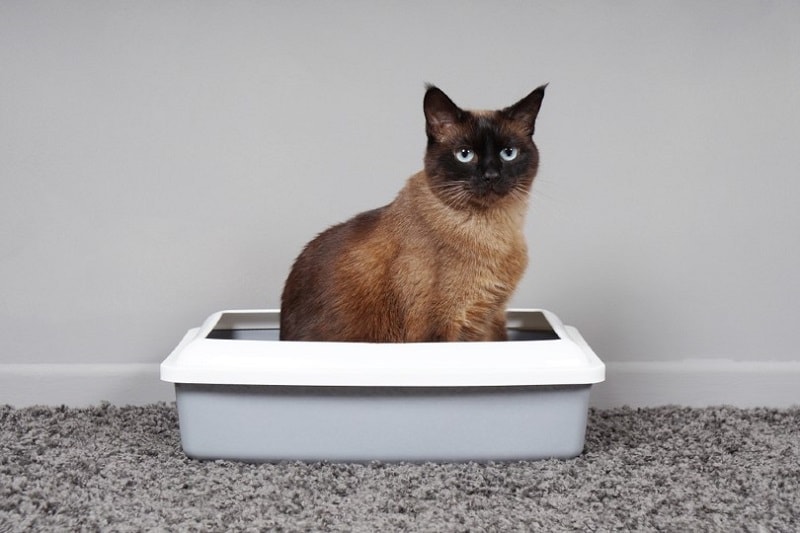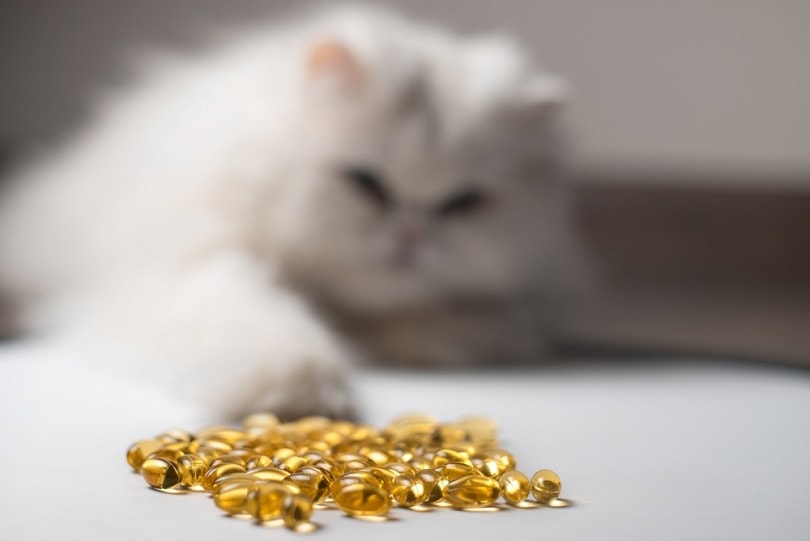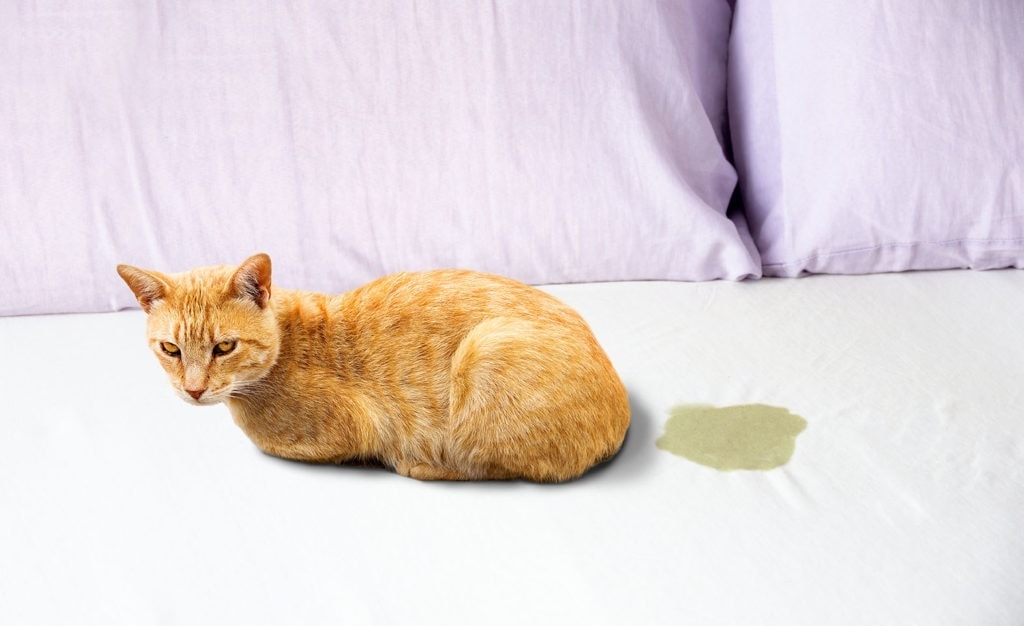Does Having Cats Keep Mice Away? The Science & FAQ
By Oliver Jones
Updated on
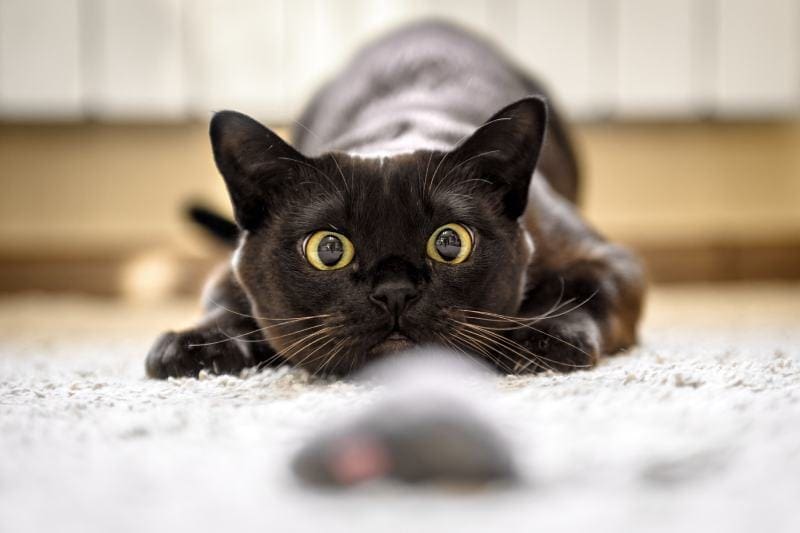
Have you ever wondered if your feline friend can double as a natural pest deterrent? The popular belief is that cats, being natural hunters, can keep mice away. However, the reality is a bit more complex. While cats can deter mice to some extent, they may not be the foolproof solution to a mouse problem.
The Cat and Mouse Dynamic
Cats are natural predators, and mice are one of their common prey. This predator-prey relationship can make your home less appealing to mice. Cats emit a chemical found in their saliva that triggers the sensory organs of mice, which can deter them from entering your home. Similarly, the smell of a cat can also scare mice away.
However, despite these effects, the scent of a cat might not be enough to keep all mice at bay. It’s important to note that not all cats have the same hunting instincts. Some may be more interested in playing with a mouse rather than hunting it.
Can Cats Eradicate a Mouse Problem?
While it’s true that some cats may catch and kill mice, not all cats are skilled hunters. Moreover, even the most adept mouser won’t be able to catch every single mouse. Mice breed rapidly, and a few missed catches could lead to a growing population.
Relying solely on a cat to control a mouse problem has its limitations. For instance, mice are good at hiding and can squeeze into small spaces where your cat can’t reach. Furthermore, some mice may simply choose to avoid the areas frequented by your cat but continue to live in other parts of your home.
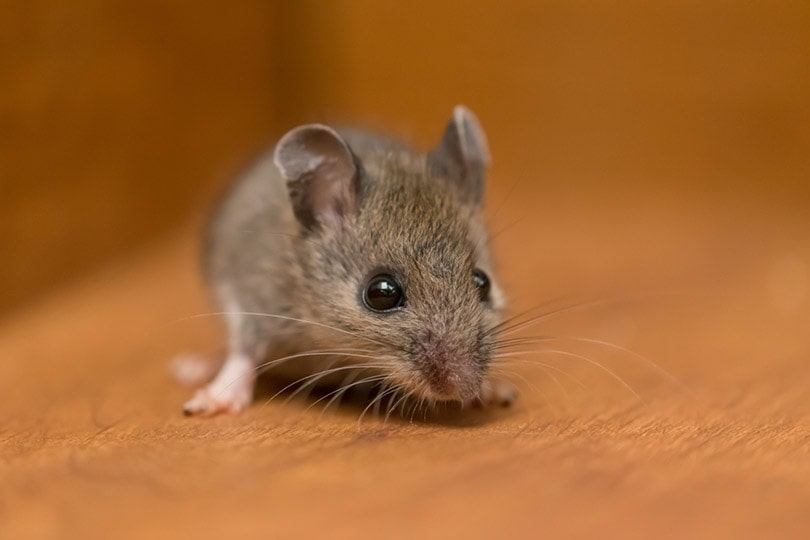
Best Mouse-Hunting Cat Breeds
Certain breeds of cats are known to be better at catching mice. While the hunting instinct can vary greatly among individual cats, some breeds are generally recognized for their mousing skills.
- Maine Coons: Known for their size and hunting skills, Maine Coons are excellent mousers. Their large size doesn’t hinder them; in fact, it often helps them catch larger prey.
- American Shorthairs: This breed is often cited as a good mouser. They have a strong hunting instinct and are very agile.
- Siamese Cats: Siamese cats are not only intelligent but also curious and active, which makes them good at catching mice.
- Japanese Bobtails: Despite their name, Japanese Bobtails are excellent hunters. They are energetic and agile, making them effective at catching mice.
- Persians: Persians can be deceptive. They might look like they prefer lounging around, but they can be quite effective when it comes to catching mice.
- Abyssinians: Abyssinians have a high mouse-catching ability. They are energetic and intelligent, which helps them excel at hunting.
Dangers of Cats Hunting and Eating Mice
Cats are naturally curious and adventurous, which can lead to them getting into trouble. When hunting mice, cats can unknowingly come into contact with diseases that can be spread to humans. For example, they may come into contact with parasites that can cause Lyme disease or toxoplasmosis. Parasites can also be passed on to cats from mice, causing a range of health issues.
It is important for owners to be aware of the dangers associated with cats hunting and eating mice, so they can keep their pets safe.
How to Keep Cats Away from Mice
It’s best to provide your cat with a healthy diet that does not include rodents or other small animals. Additionally, you should make sure to maintain a clean home that is free of excess clutter and debris, as this can attract mice.
If your cat still insists on hunting, provide them with safe toys that will satisfy their urge to hunt without endangering them or spreading diseases. There are many types of interactive toys designed specifically for cats that can help keep them entertained while satisfying their predatory urges.
Finally, it’s a good idea to make sure that any rodenticides used in your home are locked away and out of reach of cats. If your cat does come into contact with rodenticide, take them to the vet immediately for treatment.

A Better Solution to Mice Infestation
Integrated Pest Management
While cats can help control mice to some extent, a more effective solution is Integrated Pest Management (IPM). Integrated Pest Management is a comprehensive approach to controlling pests that includes preventive measures, monitoring and communication. It involves identifying the source of the problem and taking steps to eliminate it, such as sealing entry points in homes or using traps for catching mice.
IPM also promotes using natural solutions instead of chemical pesticides whenever possible. This approach helps to reduce the environmental impact of pest control measures and can be more cost-effective in the long run.
The goal of IPM is to provide an effective solution while also minimizing any potential harm to the environment. This approach is both cost-effective and eco-friendly, making it a great option for those looking for a long-term solution to mice infestation.
Professional Pest Control Services
In severe cases of mice infestation, it might be best to call in professional pest control services. They have the expertise and tools to effectively handle the situation and can provide long-term solutions to prevent future infestations.

Other FAQ About Cats & Mice
Q: What should I do if my cat catches a mouse?
A: Try to remove the mouse from your cat if it’s safe to do so. If your cat eats the mouse, monitor them for any signs of illness and consult a vet if necessary.
Q: What are some humane ways to keep mice away?
A: Some humane ways to deter mice include sealing off entry points, using natural repellents such as peppermint oil or catnip, and setting up live-catch traps. Live-catch traps allow you to catch the mouse without hurting it, so it can be released outside instead of killing it.
Q: How can I make sure my cat doesn’t hurt any mice?
A: Keeping cats indoors can help, although they may still catch wild mice if they have access to the outdoors. If your cat is an indoor/outdoor pet, ensure they’re vaccinated correctly and keep them away from areas where rodent populations are high. Supervise their hunting activities and take steps to keep mice away, such as sealing off entry points and using humane traps. Providing them with plenty of toys can also help to keep their hunting instincts in check.
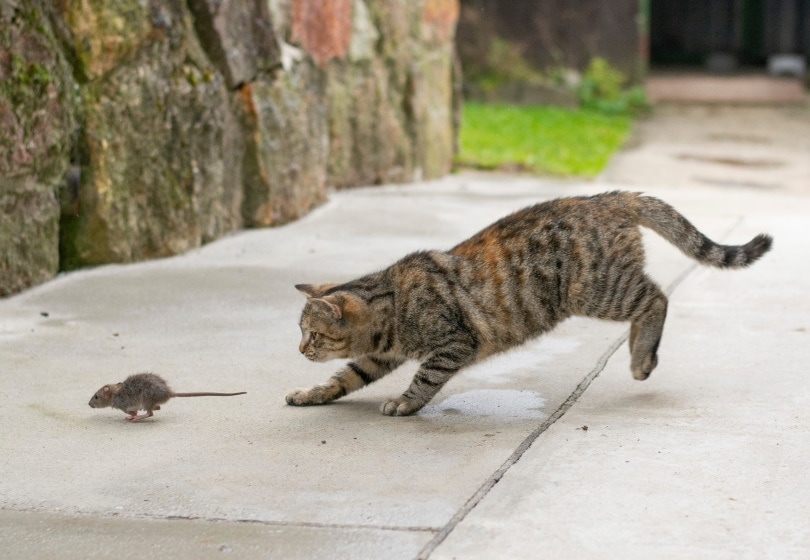
Final Thoughts
While our feline friends can lend a paw in deterring mice, they are not the ultimate solution to a mouse problem. It often requires a comprehensive approach, including preventive measures and sometimes professional intervention, to control a mouse infestation effectively. So, while your cat enjoys their favorite mouse-shaped toy, it’s best to leave the real mouse hunting to the professionals.
Featured Image Credit: Viacheslav Lopatin, Shutterstock

